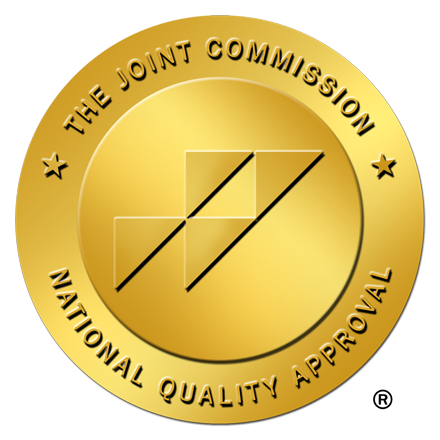Questions? Call for Help Now
Schizophrenia is one of the most challenging disorders to live with—but Alter is uniquely positioned to support people with schizophrenia for long term wellness.
Generally, when a client with a schizophrenia diagnosis comes to Alter, they are either unmedicated or are on the wrong combination of medications. As a result, the client’s symptoms of psychosis are not being managed and they are actively psychotic and can be a danger to themselves or others, but we’re able to quickly set them on a path towards healing.

We’re here to help people with schizophrenia treat immediate psychotic symptoms while working on a healing process to avoid relapse.
Depending on the acuity of the psychotic symptoms, a client will start at either a crisis stabilization (CS) or residential (RTC) center and then eventually transition to partial hospitalization (PHP) or intensive outpatient programs (IOP).

All schizophrenia treatment is not equal, and choosing a team that is equipped to handle the nuances of a schizophrenia diagnosis is key.
The clinical and medical teams at Alter work very closely to monitor symptoms of psychosis—including hallucinations, delusions, and paranoia—in clients with schizophrenia so medication interventions can happen as quickly as needed
Additionally, our medical and nursing team provides around the clock care at crisis stabilization (CS) and residential treatment centers (RTC), so if a client is mentally struggling, we have medical interventions ready immediately.
Call Now for Program Availability
Contact our admissions team to learn about our programs and to check availability at our facilities, or submit your insurance to verify coverage.

“Our son has been struggling for 4 years with mental health issues. We’ve had some terrible experiences with other hospitals and getting his medications right. Once we heard about Alter Mental Health, we hoped this was an answer to our prayers. From the first time we contacted them, they have been wonderful.
I talk to my son on the phone and he seems very content there. He’s not complaining about anything like he has at previous places. He says the food is good, everyone is nice to him. He enjoys the activities. Last night he said they took them for a manicure/pedicure at a salon and he liked it!
I can’t say enough good things. I no longer stress about him as I know he is safe and getting help in a great place. Lorraine has been very good answering our questions and explaining the medications. We plan to keep him there as long as necessary. I like that they have a holistic approach as well and they will teach him life skills that will benefit him. I finally feel like we will get our son back to his baseline and he can have a positive future!”
– Kathy M.
Schizophrenia profoundly affects families, impacting them emotionally, socially, financially, and practically. Watching a loved one struggle with symptoms like hallucinations and delusions while fearing for their safety creates significant emotional strain, while also disrupting family dynamics and roles for all family members. The financial burden of treatment expenses and loss of income compounds stress, as family members often take on caregiving responsibilities, adjusting routines and sacrificing social connections. While living with schizophrenia is challenging, there is hope for the whole family and Alter is here to help.


All staff members at Alter understand the importance of family involvement for long-term success. Alter goes above and beyond the traditional treatment center to include the family along the way, sharing symptom updates and medication changes. We also prioritize education for the family and will provide family therapy when it is appropriate.
Schizophrenia is a chronic mental health disorder characterized by a range of symptoms that affect thinking, emotions, perceptions, and behavior. Around 3.2 million Americans suffer from schizophrenia. This is a disorder that people must deal with their entire lives.
Symptoms typically appear during adolescence, but people can develop it in childhood or adulthood, as well. Schizophrenia is complex and can vary widely in presentation and severity among individuals.
The exact cause of schizophrenia is not fully understood, and it is likely the result of a complex interplay of genetic, environmental, and neurobiological factors such as:
Psychosocial factors: Stressful life events, such as trauma, loss, abuse, or chronic interpersonal stress, may trigger the onset of schizophrenia or exacerbate existing symptoms in susceptible individuals. Additionally, social factors such as poverty, discrimination, and social exclusion can impact the course and outcome of the disorder.
Schizophrenia is characterized by a range of symptoms that can vary widely among individuals and may fluctuate in intensity over time. These symptoms are typically categorized into three main domains: positive symptoms, negative symptoms, and cognitive symptoms. Here are some common signs and symptoms of schizophrenia:
Positive Symptoms: Experiences or behaviors that are not typically present in the general population. These symptoms include:
Negative Symptoms: Deficits or absence of normal behaviors or experiences that are typically present in healthy individuals. These symptoms can be particularly debilitating
Cognitive Symptoms: Deficits or impairments in various aspects of thinking, reasoning, memory, and information processing. These symptoms can significantly impact an individual’s ability to function effectively in daily life.
Attention deficits: Difficulty focusing, sustaining attention, or shifting attention between tasks. Individuals may become easily distracted or have trouble concentrating on tasks.
Call Now for Program Availability
Contact our admissions team to learn about our programs and to check availability at our facilities, or submit your insurance to verify coverage.
We accept most major insurance providers including the ones displayed here.
Submit your insurance to confirm coverage.










We accept most major insurance providers including the ones displayed here.
Submit your insurance to confirm coverage.




















Our facilities have been awarded prestigious recognition and certifications by adhering to rigorous guidelines and exceeding quality standards with consistent, safe & effective healthcare services.


We are on a mission to improve the lives of people with mental health conditions.
34270 Pacific Coast Hwy
3rd Floor
Dana Point, CA 92629
Questions? Call now to speak confidentially with an admissions counselor.